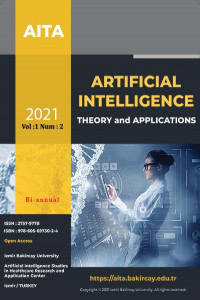Abstract
The world is facing a huge health crisis due to the coronavirus pandemic (COVID-19). The World Health Organization (WHO) has issued that the most effective preventive measure against the rapid spread of coronavirus is wearing a mask and keeping social distance in public places and crowded areas. Various studies have proven that wearing a face mask significantly reduces the risk of viral transmission, and also provides a sense of protection for people. But it is difficult to monitor and control people manually, especially in crowded areas.
In this study, a deep learning model is proposed to automatically detect people wearing face masks or not. The pre-trained Faster R-CNN Inception V2 deep learning model is fine-tuned with the transfer learning method and trained and tested on the Simulated Masked Face Dataset (SMFD). The model trained in the TensorFlow environment is accurate enough to detect the face mask. Thus, face mask detection is performed with the interface created on LabVIEW and a safe working environment can be maintained by controlling security violations in public living areas under control.
References
- [1] Paris tests face-mask recognition software on metro riders [online], Available: http://bloomberg.com/
- [2] Qin, B., & Li, D. (2020). Identifying facemask-wearing condition using image super-resolution with classification network to prevent COVID-19. Sensors, 20(18), 5236.
- [3] Loey, M., Manogaran, G., Taha, M. H. N., & Khalifa, N. E. M. (2020). A hybrid deep transfer learning model with machine learning methods for face mask detection in the era of the COVID-19 pandemic. Measurement, 167, 108288.
- [4] Loey, M., Manogaran, G., Taha, M. H. N., & Khalifa, N. E. M. (2020). Fighting against COVID-19: A novel deep learning model based on YOLO-v2 with ResNet-50 for medical face mask detection. Sustainable cities and society, 65, 102600.
- [5] Li, C., Wang, R., Li, J., & Fei, L. (2020). Face detection based on YOLOv3. In Recent Trends in Intelligent Computing, Communication and Devices (pp. 277-284). Springer, Singapore
- [6] Din, N. U., Javed, K., Bae, S., & Yi, J. (2020). A novel GAN-based network for unmasking of masked face. IEEE Access, 8, 44276-44287.
- [7] Nieto-Rodríguez, A., Mucientes, M., & Brea, V. M. (2015, June). System for medical mask detection in the operating room through facial attributes. In Iberian Conference on Pattern Recognition and Image Analysis (pp. 138-145). Springer, Cham.
- [8] Ejaz, M. S., Islam, M. R., Sifatullah, M., & Sarker, A. (2019, May). Implementation of principal component analysis on masked and non-masked face recognition. In 2019 1st international conference on advances in science, engineering and robotics technology (ICASERT) (pp. 1-5). IEEE.
- [9] URL,”https://towardsdatascience.com/a-comprehensive-hands-on-guide-to-transfer-learning-withreal-world-applications-in-deep-learning-212bf3b2f27a”, Date of access: 12/31/2020.
- [10] Dataset, https://github.com/prajnasb/observations.
- [11] Ren, S., He, K., Girshick, R., & Sun, J. (2015). Faster r-cnn: Towards real-time object detection with region proposal networks. Advances in neural information processing systems, 28, 91-99.
- [12] Hachiya, H., Saito, Y., Iteya, K., Nomura, M., & Nakamura, T. (2018, October). 2.5 d faster r-cnn for distance estimation. In 2018 IEEE International Conference on Systems, Man, and Cybernetics (SMC) (pp. 3999-4004). IEEE.
- [13] Szegedy, C., Vanhoucke, V., Ioffe, S., Shlens, J., & Wojna, Z. (2016). Rethinking the inception architecture for computer vision. In Proceedings of the IEEE conference on computer vision and pattern recognition (pp. 2818-2826).
- [14] URL,”https://www.tensorflow.org/overview/,”TensorFlow Overview, Date of access: 12/27/2020.
- [15] URL, https://forums.ni.com/t5/Example-Code/Deep-Learning-Object-Detection-using-VisionDevelopment-Module/ta-p/3842985?profile.language=en, Date of access: 11/20/2020.
Abstract
References
- [1] Paris tests face-mask recognition software on metro riders [online], Available: http://bloomberg.com/
- [2] Qin, B., & Li, D. (2020). Identifying facemask-wearing condition using image super-resolution with classification network to prevent COVID-19. Sensors, 20(18), 5236.
- [3] Loey, M., Manogaran, G., Taha, M. H. N., & Khalifa, N. E. M. (2020). A hybrid deep transfer learning model with machine learning methods for face mask detection in the era of the COVID-19 pandemic. Measurement, 167, 108288.
- [4] Loey, M., Manogaran, G., Taha, M. H. N., & Khalifa, N. E. M. (2020). Fighting against COVID-19: A novel deep learning model based on YOLO-v2 with ResNet-50 for medical face mask detection. Sustainable cities and society, 65, 102600.
- [5] Li, C., Wang, R., Li, J., & Fei, L. (2020). Face detection based on YOLOv3. In Recent Trends in Intelligent Computing, Communication and Devices (pp. 277-284). Springer, Singapore
- [6] Din, N. U., Javed, K., Bae, S., & Yi, J. (2020). A novel GAN-based network for unmasking of masked face. IEEE Access, 8, 44276-44287.
- [7] Nieto-Rodríguez, A., Mucientes, M., & Brea, V. M. (2015, June). System for medical mask detection in the operating room through facial attributes. In Iberian Conference on Pattern Recognition and Image Analysis (pp. 138-145). Springer, Cham.
- [8] Ejaz, M. S., Islam, M. R., Sifatullah, M., & Sarker, A. (2019, May). Implementation of principal component analysis on masked and non-masked face recognition. In 2019 1st international conference on advances in science, engineering and robotics technology (ICASERT) (pp. 1-5). IEEE.
- [9] URL,”https://towardsdatascience.com/a-comprehensive-hands-on-guide-to-transfer-learning-withreal-world-applications-in-deep-learning-212bf3b2f27a”, Date of access: 12/31/2020.
- [10] Dataset, https://github.com/prajnasb/observations.
- [11] Ren, S., He, K., Girshick, R., & Sun, J. (2015). Faster r-cnn: Towards real-time object detection with region proposal networks. Advances in neural information processing systems, 28, 91-99.
- [12] Hachiya, H., Saito, Y., Iteya, K., Nomura, M., & Nakamura, T. (2018, October). 2.5 d faster r-cnn for distance estimation. In 2018 IEEE International Conference on Systems, Man, and Cybernetics (SMC) (pp. 3999-4004). IEEE.
- [13] Szegedy, C., Vanhoucke, V., Ioffe, S., Shlens, J., & Wojna, Z. (2016). Rethinking the inception architecture for computer vision. In Proceedings of the IEEE conference on computer vision and pattern recognition (pp. 2818-2826).
- [14] URL,”https://www.tensorflow.org/overview/,”TensorFlow Overview, Date of access: 12/27/2020.
- [15] URL, https://forums.ni.com/t5/Example-Code/Deep-Learning-Object-Detection-using-VisionDevelopment-Module/ta-p/3842985?profile.language=en, Date of access: 11/20/2020.
Details
| Primary Language | English |
|---|---|
| Subjects | Engineering |
| Journal Section | Research Articles |
| Authors | |
| Publication Date | September 30, 2021 |
| Published in Issue | Year 2021 Volume: 1 Issue: 2 |

